Glass is a traditional artist’s best friend. Literally, every single surface in my studio is covered with glass.
Many of you have probably seen, or even use, a glass palette for mixing paint. A lot of people don’t realize that you can’t scratch glass with a razor blade, which makes it a great surface for mixing paint! You can easily scrape the old, dried paint off of it with a simple scraper. Whereas, if you forget to wipe down a traditional wood palette, and your paint dries on it, you may as well throw it away and buy yourself a new one.
The other cool thing about using a glass palette is that you can place any image you want BEHIND the glass. I tend to keep a neutral grey surface and a value scale there for reference, but you could just as easily place a classic Bouguereau painting and try to match the colors right on top of it!
In addition to making a great palette, the scratch resistance of glass means you can also use it as a cutting surface. Though, blades do admittedly dull quickly when cutting on it, the trade off of having a large sturdy cutting surface is well worth it.
By covering every surface I have in glass, it means I can work literally ANYWHERE in the studio. Every single surface can quickly become an impromptu cutting mat, palette, easel, gessoing table, or whatever whenever I need it. All without a single worry of damaging the surface beneath. This means I can work quickly, and MESSILY, without stopping to worry about protecting things around me. Tape, turpentine, cuts, spills, food, coffee mugs, dirty brushes… none of it matters. Everything can be scraped off later on.
And best of all, it allows you to showcase the furniture beneath it. As a hobbyist wood worker, I love being able to see the beauty of oak furniture, while still protecting it from harm.
If you’re looking to do this to your studio as well, there a few things to keep in mind.
Cost:
Glass is relatively inexpensive, but varies according to type of glass you’re purchasing. You can expect to cover a large 30×40 work surface for about $50 with the type of glass I use, which is about $3 a square foot.
Glass type:
Most commercial applications of glass use what is called ‘Tempered Glass’. Tempered Glass shatters into a million little pieces when it breaks, which prevents you from severing an artery on a large shard. And although this is great for windshields and coffee tables, you do not want to use it in your studio. Because the glass is covering a solid surface, there is little risk of falling through it and getting harmed.
What you want, is ‘Plate Glass’. Plate glass will crack into large manageable pieces if something should go wrong. If you get a little over zealous with a clamp light or something, you might crack a corner off your glass, whereas tempered glass will explode right before your eyes and render the entire piece unusable. Tempered Glass is often called ‘Safety Glass’, and Plate Glass is often called ‘Untempered’.
Thickness:
I like to use 1/4 inch glass. Any thinner, and you run the risk of cracking it very easily. Any thicker, and you’re adding a substantial, and unnecessary, amount of weight to your furniture.
Edges:
Glass edges are really sharp. They need to be polished. Many glass cutters will provide a basic, flat polish free of charge. But they may not, so be sure to take polishing into account when getting a quote. Many cutters will just polish the edge to the point of not being dangerous, and stop there. But because I spend so much time working in the studio, and am often leaning my arms against the edge of the table for long periods of time, I specifically request a really deep flat polish or what is called a ‘Pencil Ground’ edge. The pencil ground edge simply rounds out the whole side, though can be quite costly. In most cases, a good flat polish will suffice.
Where to get it:
I highly recommend finding a local provider for your glass. Although you can easily purchase it online at a discount, in my experience it is well worth the extra expense to go meet with an expert in person. My glass cutter was able to answer all of my questions, make recommendations, remembers the way I like it polished when I purchase new pieces, and has even given me great discounts on small pieces that served him little commercial purpose otherwise.


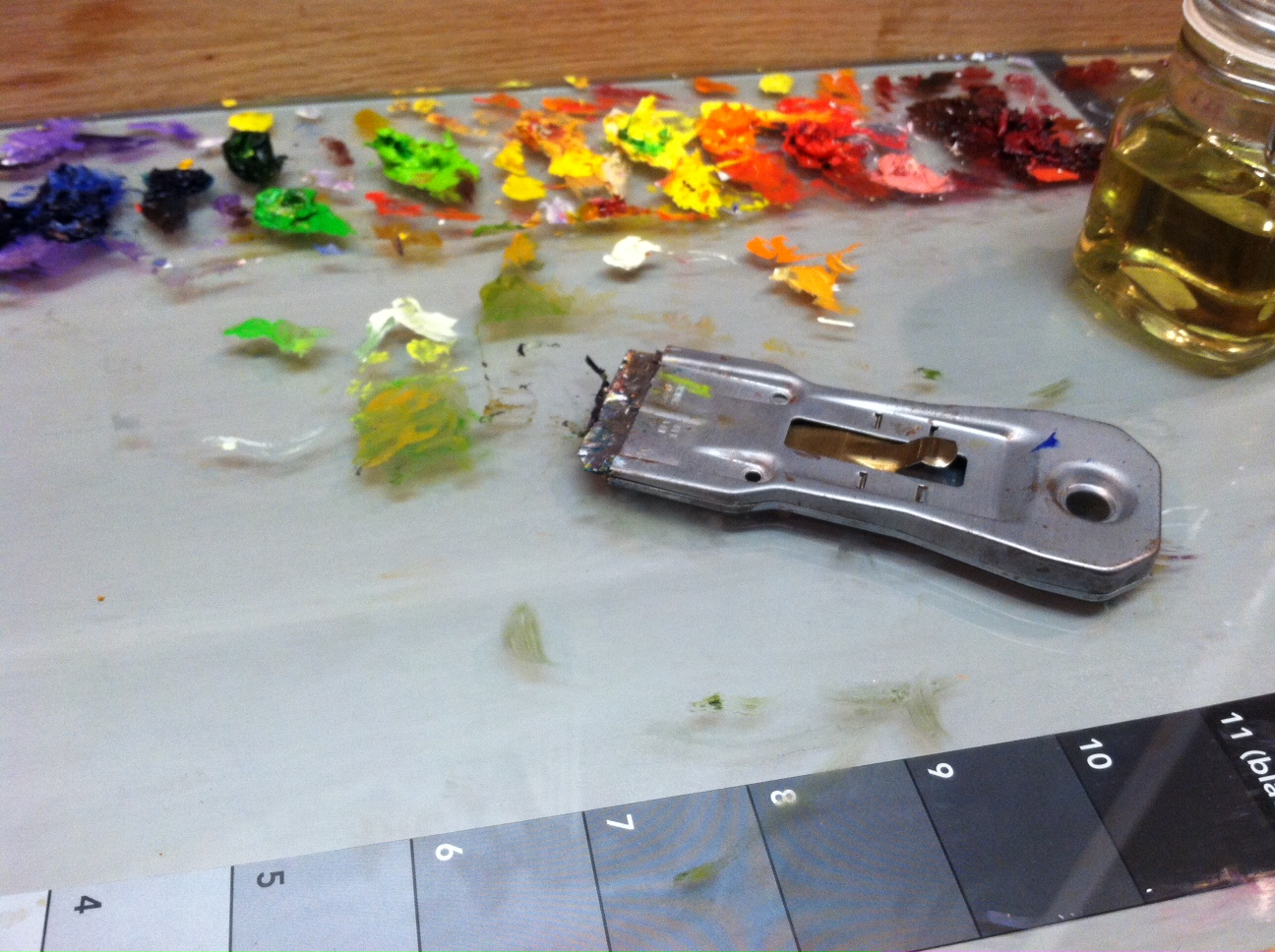
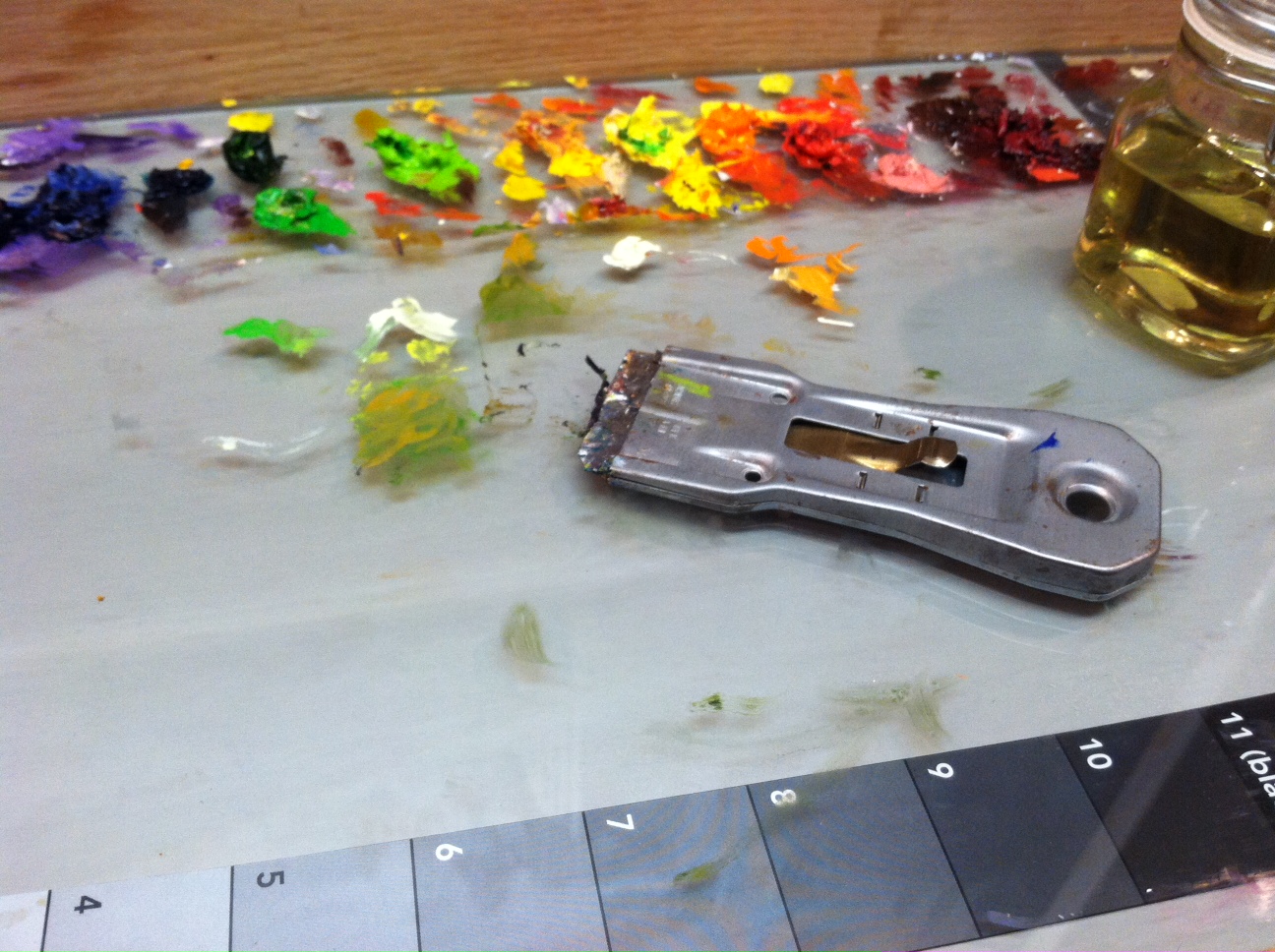
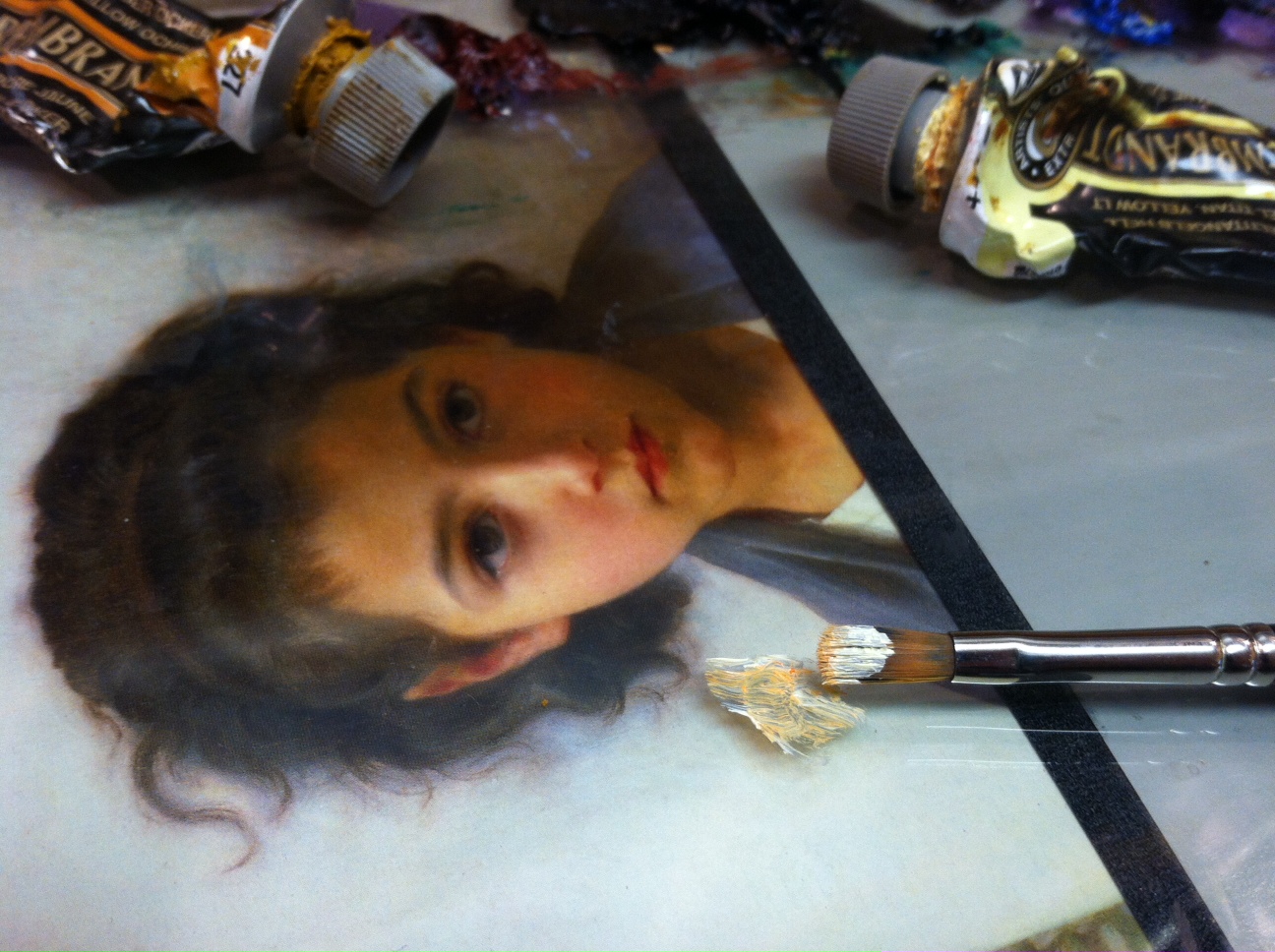

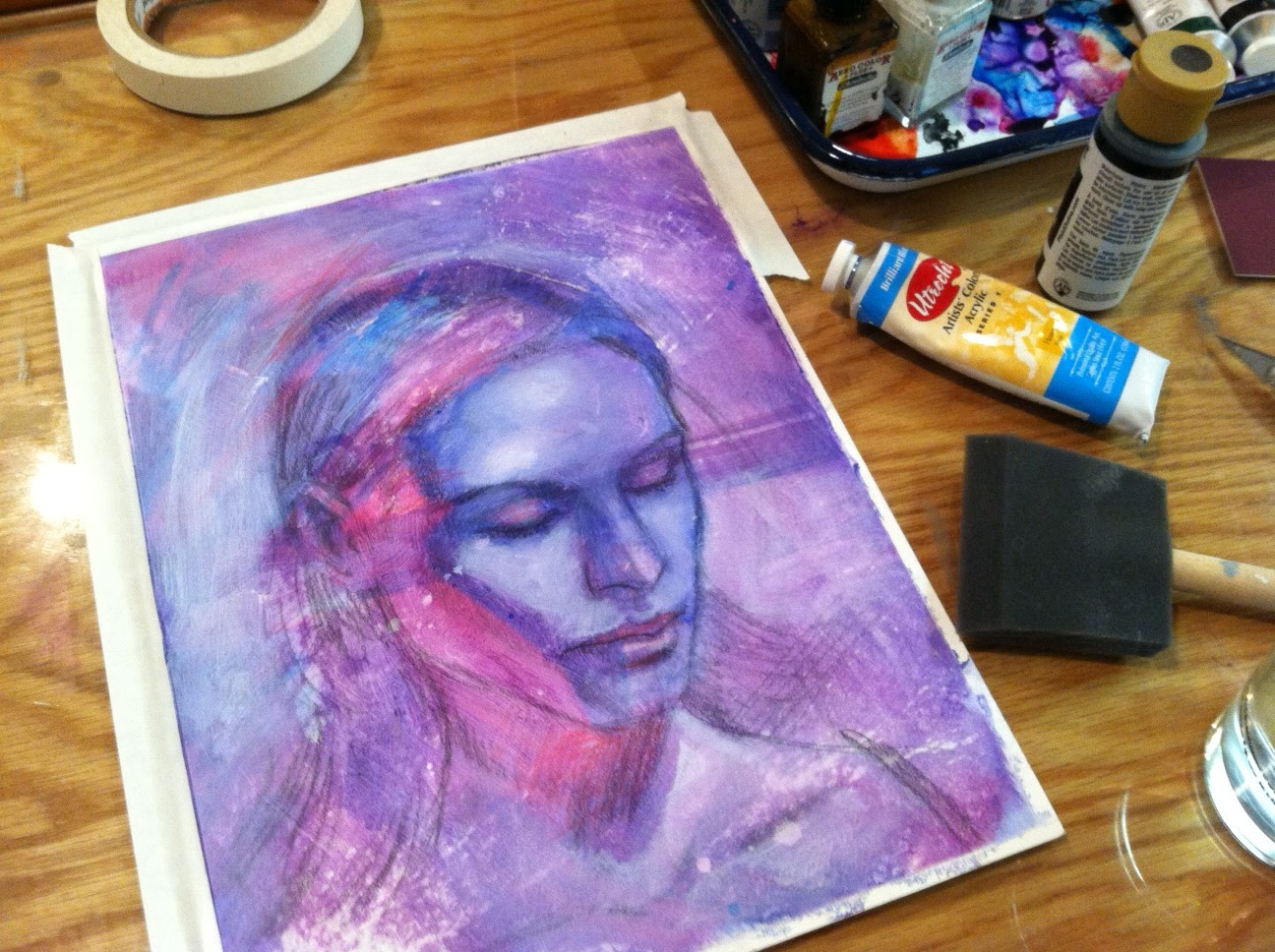
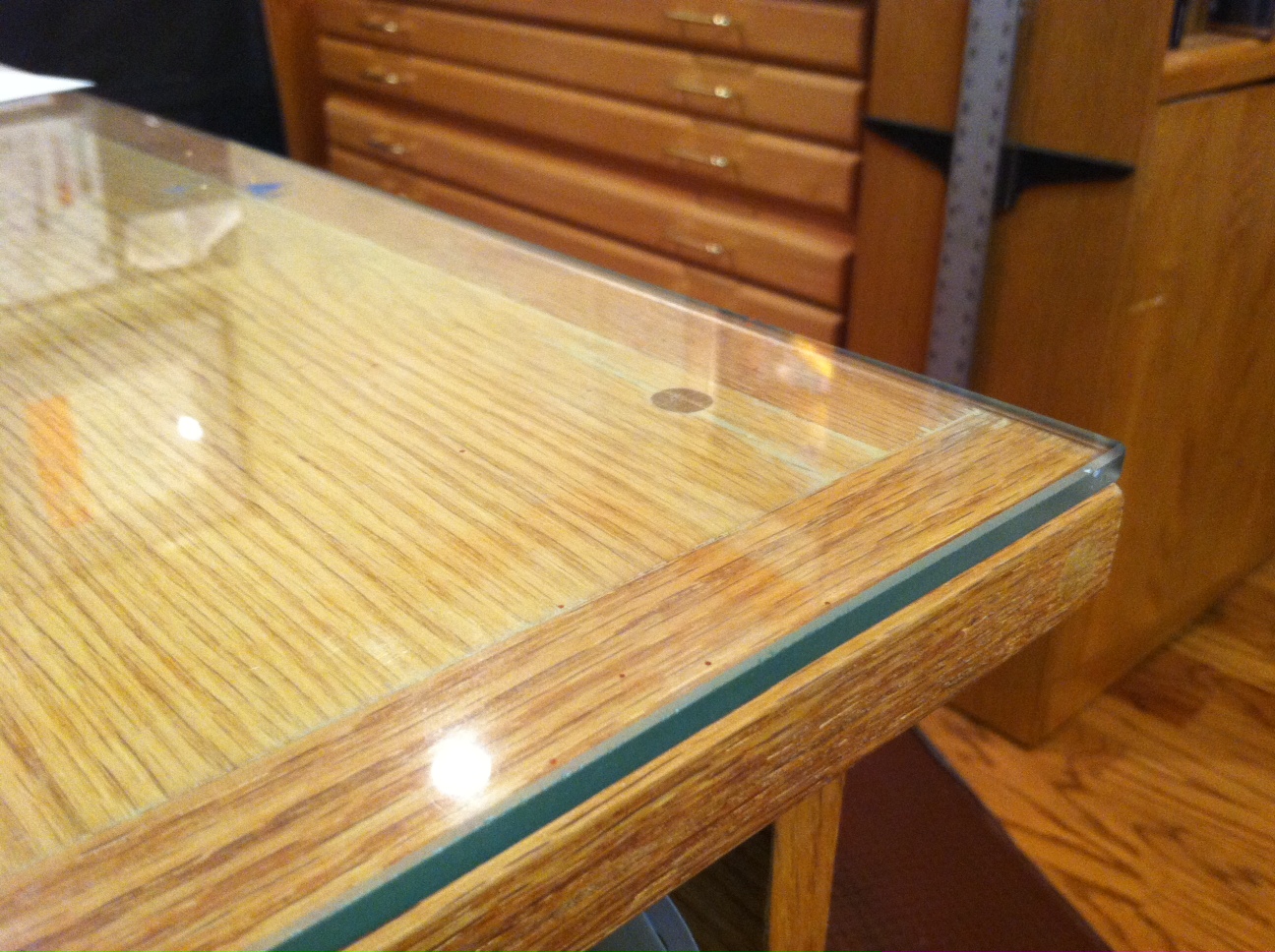

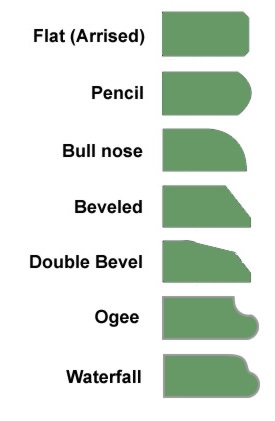


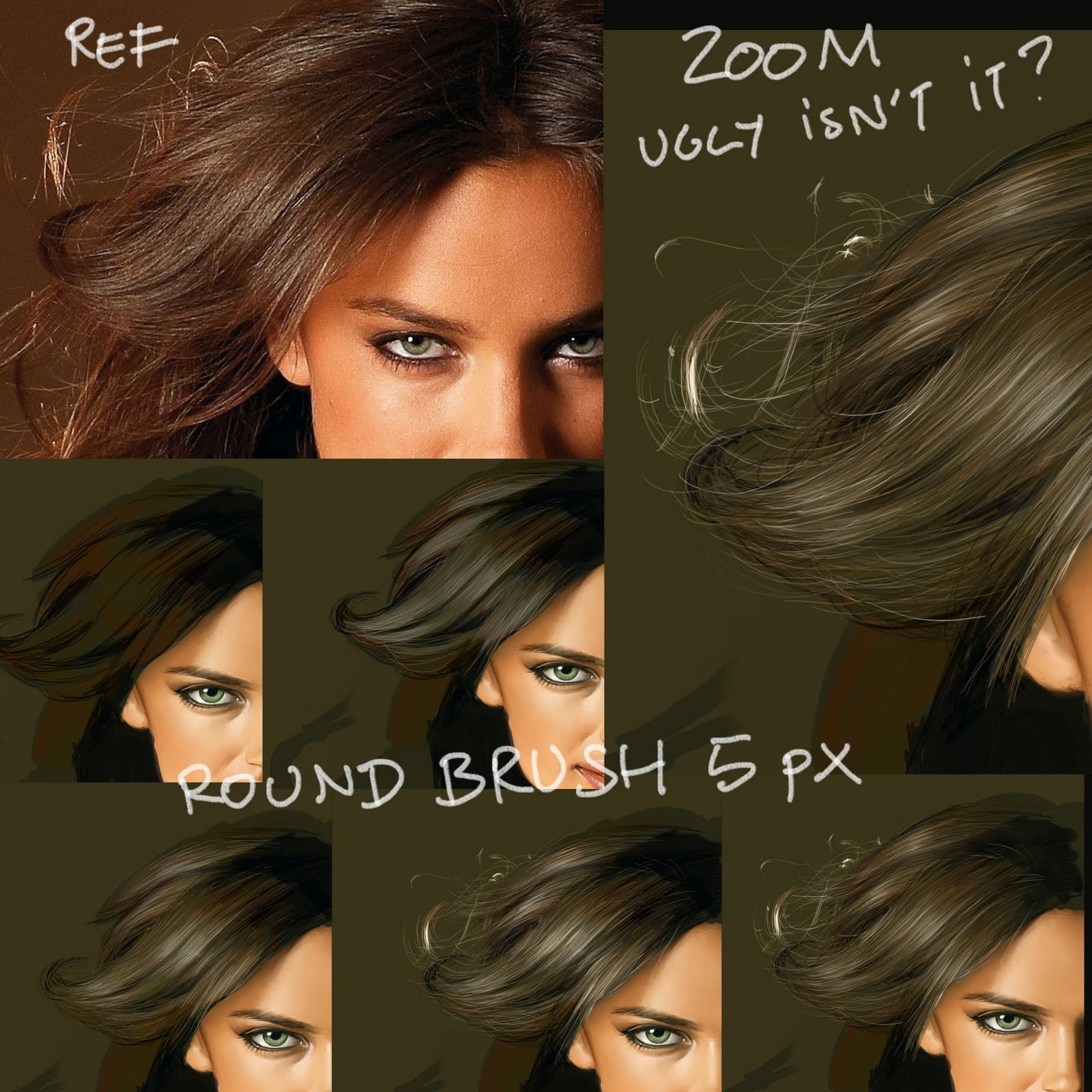
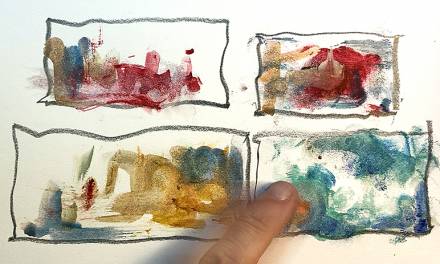

Fantastic post, Dan! I love this! I've been using glass for years.
I use a large pane of milk glass in my studio in Oregon and have had it for ages. It's solid white and works great for a palette. It's almost 3/8″ thick. True milk glass is difficult to find anymore though. Mine is quite old.
But mine does scratch if I get too active with the razor blade. And I've found that other smaller glass palettes scratch, too. It's often baffled me. But maybe it's the difference in glass you are using? Or maybe you have a lighter touch! I don't often change my razor blades…: )
Thanks for this. I'm re-inspired to cover my surfaces!!
Thanks for the post, Dan. I use glass too. One of the things I like best is the cleanup of dried paint. Squirt a little water on the palette with the dried paint (oil or acrylic) let it sit for a few minutes so the water can creep under the paint, and when you scrape, it comes off like nobody's business.
Great Post Dan, good information.
I switched to a glass palette about 4 years ago.
One way I have used a glass palette is to buy old frames with glass from thrift shops, (or better yet, garage sales). I take the glass out, gesso the frame white, back the glass with white Bristol board, and put it all back togeather. The frame protects the glass from breaking, and also from cutting anything with the edges.
It makes a nice little palette that can be taken outdoors, all for about $2-$3. It is also usefull as I can put it directly in the freezer after a long day painting, and the paint is still good the next morning.
Greg. From what I've read, it's usually only poor quality glass that scratches. When you drag a razor over low grade glass it grabs small imperfections off the surface, and then drags them across it. It's actually ultra-fine particles of glass that's doing the scratching, not the razor itself.
Thanks for this, Dan! I've got an old palette I put together with 2 pieces of glass and foam core, but I hadn't considered used a neutral gray or keeping a grayscale reference in between for the sandwich “filling.” It's something I'll be doing when I make up a new palette!
I have only used a glass palette for oils, never liked the wood ones. I made a palette with a piece of cabinet grade plywood edged it with wood trim strips that rise above the plywood to the thickness of the glass, embedding or cradling its sharp edges just slightly below the surface of the strips.
The glass is a snug fit so it won't fall out but I can change it out anytime I want to, if it does become scratched ( I guess I am like Gregory Manchess, hard on it). To remove the glass I had first drilled a 1″ hole in the plywood near one side to release any suction and give a point to push out the old glass.
Edging this way could also be used on a table top surface, so that polishing the glass is not required, it avoids chipping the edges of the glass and looks quite attractive since edging can be any choice of wood or other material.
I used to do the exact same thing, David. But discovered I liked just having the glass float above more. The wood trim was always getting in the way when I was trying to push the paint over the edge. I would scrape it, stain it, and it prevented me from pushing liquid spills over the edge cleanly.
Thanks for the advice! I just got mine today and used your notes.
مع شركة بسمة الرياض سوف تحصل على واجهة راقية تليق بك فنحن أفضل شركة تنظيف واجهات زجاج بالرياض لأننا نمتلك كل المعدات والمنظفات اللازمة للقيام بعملية تنظيف واجهة بجودة عالية. على الرغم من اعطاء الواجهات الزجاجية مظهرآ رائع الا انها تمتلك احد العيوب الا وهو حدوث تجمع للأتربة عليها بشكل مستمر لذلك نحن نمتلك فريق عمل وفرنا له رافعات حديثة حيث يستطيعوا التعامل مع جميع ارتفاعات المباني المختلفة بالاضافة لاستخدام منظفات خاصة لا تحدث خدش بالزجاج وتجعله نظيف ولامع فمعنا سوف تجعل واجهتك جديدة باستمرار.
نحن جميعآ نعلم أن الواجهة الزجاجية من أصعب الواجهات فى التنظيف لكنها فى نفس الوقت اذا كنت صاحب فندق علي سبيل المثال تعطي للنزلاء انطباعآ جماليآ لا ينسى لمكان سحر وفى حالة أن كنت تريد الحصول على واجهة شركة تليق بسمعة علامتك التجارية فنحن سوف نوفر لك ما تود الحصول عليه بالاضافة طبعآ لخدمات تنظيف الواجهات لعملاءنا الاعزاء اصحاب المنازل والفلل.
شركة تنظيف واجهات حجر بالرياض تبحث عن الجديد دائمآ لارضاء عملاءها وجعلهم يرتقون بأعمالهم ومنازلهم.
I got my glass palette from Blick.And after few uses there appear tiny cracks.I am working in oils and cleaning it with palette knife and solvent.Don`t have any explanation.
good article thank you
a href=”https://makkah-moving.com/movers-in-makkah/”>افضل شركة نقل عفش بمكة
كشف تسربات المياه بجدة
شركة نقل عفش بجدة
شركة كشف تسربات المياه بجدة